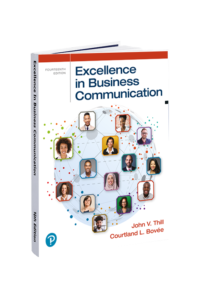
Business communication instructors equip students with essential skills for navigating the professional world. However, they also confront challenges like academic dishonesty and disruptive behavior, which can hinder the learning process and create a hostile environment. This article explores effective strategies for addressing cheating, plagiarism, and verbal abuse, taking into account the evolving landscape of education and the increasing importance of cultural sensitivity and emotional intelligence.
Combating Cheating and Plagiarism in a Digital Age
Cheating and plagiarism undermine the learning process and deprive students of developing crucial communication skills. To combat these issues, instructors must establish clear expectations and consequences, as outlined in the syllabus and reinforced throughout the course. This includes defining plagiarism and cheating, outlining penalties, and emphasizing academic integrity. [1]
Technology plays a significant role in both preventing and enabling academic dishonesty. Instructors can utilize plagiarism detection software like Turnitin, Copyleaks, or Grammarly, while acknowledging their limitations. Designing assessments that require original thought, employing diverse exam versions, and incorporating in-class writing and presentations can further discourage cheating. [2] The rise of online and hybrid learning environments presents unique challenges, such as contract cheating and unauthorized online resource use. Exploring online proctoring tools, while carefully considering ethical implications and student privacy, can be a part of the solution.
When incidents occur, addressing them promptly and consistently according to institutional policies is crucial. Meeting with the student privately, documenting the incident, and determining appropriate consequences can discourage future violations. [3]
Navigating Verbal Abuse and Disruptive Behavior
Verbal abuse and disruptive behavior threaten a productive learning environment and undermine instructor authority. Setting clear expectations for respectful communication and behavior in the syllabus and consistently reinforcing them is essential. [4]
Addressing cultural sensitivity is paramount when navigating these issues. Recognizing that communication styles and perceptions of disrespect vary across cultures is crucial. Instructors should strive for inclusivity, respecting diverse perspectives and providing support for students from different cultural backgrounds.
If a student engages in verbal abuse or disruptive behavior, the instructor should remain calm and professional while firmly addressing the issue. This may involve asking the student to leave, ending the conversation, or involving security if the situation escalates. [5] Documenting the incident and following up with the student and relevant administrators is essential.
Instructors must also prioritize their own well-being by setting boundaries, such as limiting communication to business hours and disengaging from abusive messages. Seeking support from colleagues, department heads, or campus resources is vital for navigating challenging situations. [6]
Cultivating a Positive and Inclusive Learning Environment
While addressing individual incidents is important, fostering a positive and inclusive learning environment can prevent such issues. Building rapport with students, creating opportunities for engagement and collaboration, and modeling respectful communication are key. [7]
Emphasizing the role of emotional intelligence (EQ) can significantly enhance communication effectiveness. Understanding and managing emotions equips students to handle conflict, navigate difficult individuals, and maintain professionalism. Incorporating activities that develop EQ skills, such as role-playing, case studies, and self-reflection, can be highly beneficial.
Incorporating lessons on ethical communication, responsible research practices, and professional conduct into the curriculum is essential. Highlighting the real-world applications and consequences of these skills underscores the importance of integrity and respect in academic and professional contexts.
Microaggressions: Recognizing and Responding
Microaggressions, subtle but offensive comments or actions directed at a marginalized group, can significantly impact the learning environment. Instructors should define and provide examples of microaggressions that might occur in a business communication classroom, such as biased language or stereotypes. Offering guidance on how to respond effectively and promote respectful communication is crucial.
Navigating Academic Dishonesty and Disruptive Behavior Requires a Multifaceted Approach.
By setting clear expectations, utilizing technology effectively, addressing cultural sensitivities, and promoting emotional intelligence, instructors can create a more positive and inclusive learning environment. Exploring restorative justice and emphasizing the significance of ethical communication further contribute to a culture of respect and integrity, both within the classroom and beyond.
References
[1]: Charles R. Knapp et al., "Promoting Academic Integrity: Strategies for Preventing Cheating and Plagiarism," in The Routledge Companion to Business Ethics, ed. Tobey Scharding (New York: Routledge, 2021), 291-304.
[2]: Edward J. White and M. Lance Frazier, "Detecting and Discouraging Plagiarism in Business Communication Courses," Business and Professional Communication Quarterly 81, no. 3 (2018): 279-298.
[3]: Knapp et al., "Promoting Academic Integrity."
[4]: Amy D'Olivo and M'Liss Hindman, "Incivility in the Classroom: A Model for Prevention," Business and Professional Communication Quarterly 84, no. 2 (2021): 223-240.
[5]: Ibid.
[6]: D'Olivo and Hindman, "Incivility in the Classroom."
[7]: White and Frazier, "Detecting and Discouraging Plagiarism."

Excellence in Business Communication is the ideal textbook for instructors facing challenges like academic dishonesty and disruptive behavior. The text proactively addresses these issues by emphasizing ethical decision-making, professional communication, and personal integrity throughout its content. Its practical, applied approach helps students understand the real-world consequences of their actions and choices. By fostering a culture of respect and responsibility, Excellence in Business Communication equips students with the mindset and skills needed to succeed both academically and professionally.
Comprehensive instructor resources make Excellence in Business Communication an invaluable tool for creating a positive, productive learning environment. The text's engaging examples, case studies, and interactive exercises encourage active learning and critical thinking, reducing the likelihood of cheating and plagiarism. Its emphasis on collaborative problem-solving and respectful dialogue helps prevent verbal abuse and disruptive behavior.
Excellence in Business Communication's focus on real-world applications and ethical dilemmas prepares students for the challenges they will face in their careers. By integrating topics like corporate social responsibility and professional ethics, the text helps students develop a strong moral compass and a commitment to integrity. As a result, Excellence in Business Communication not only supports instructors in dealing with classroom challenges but also sets students up for long-term success in business.